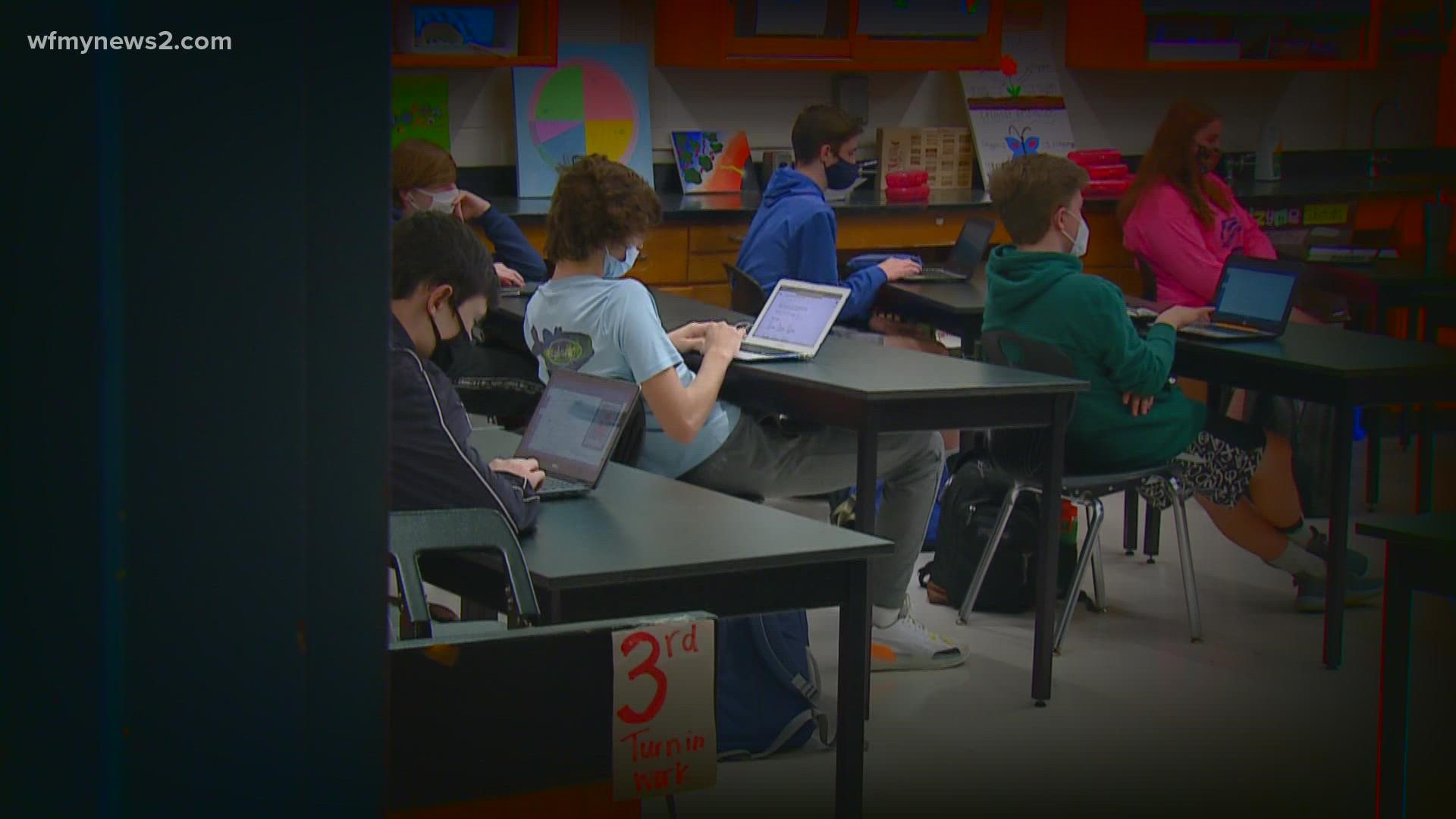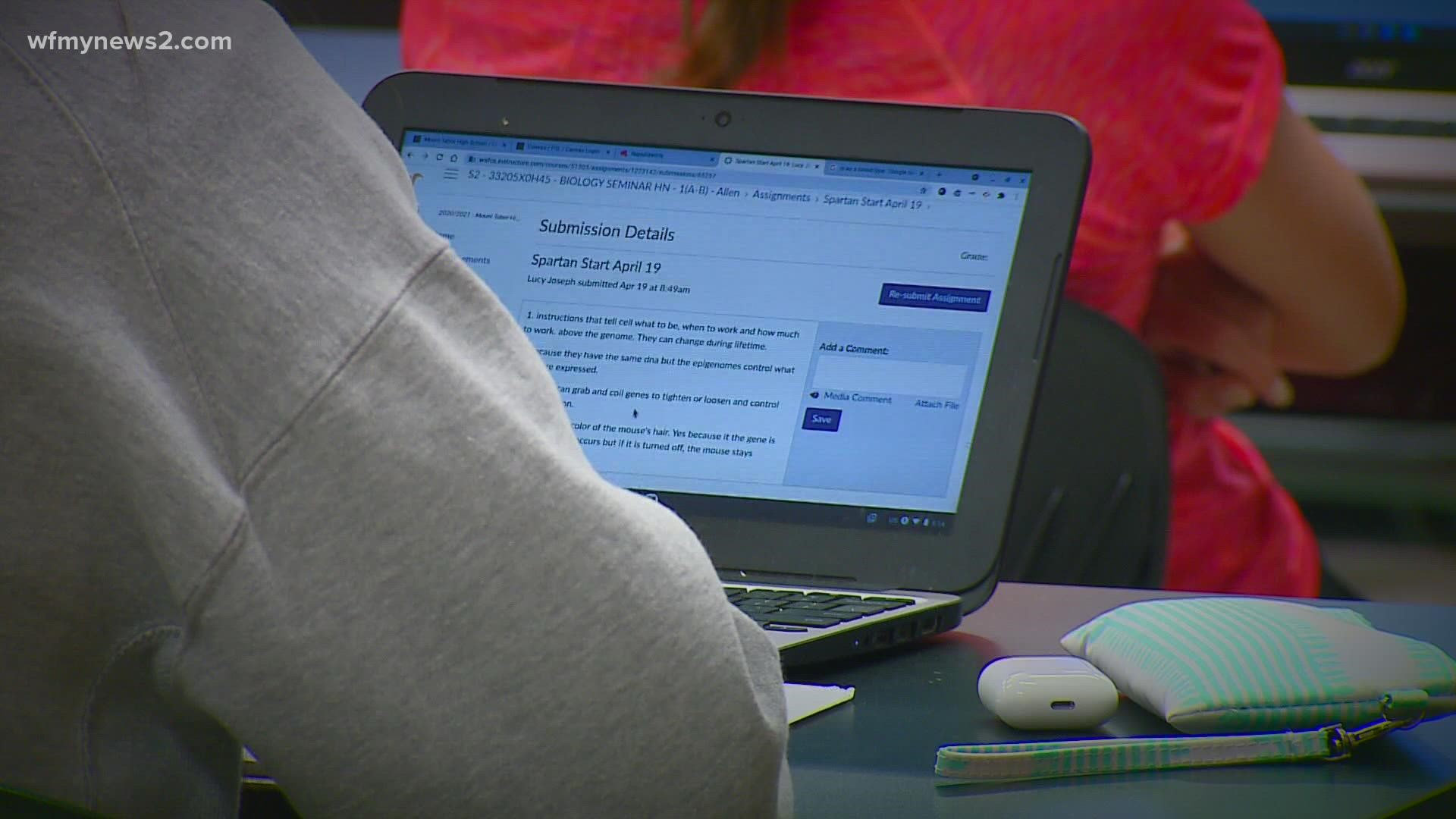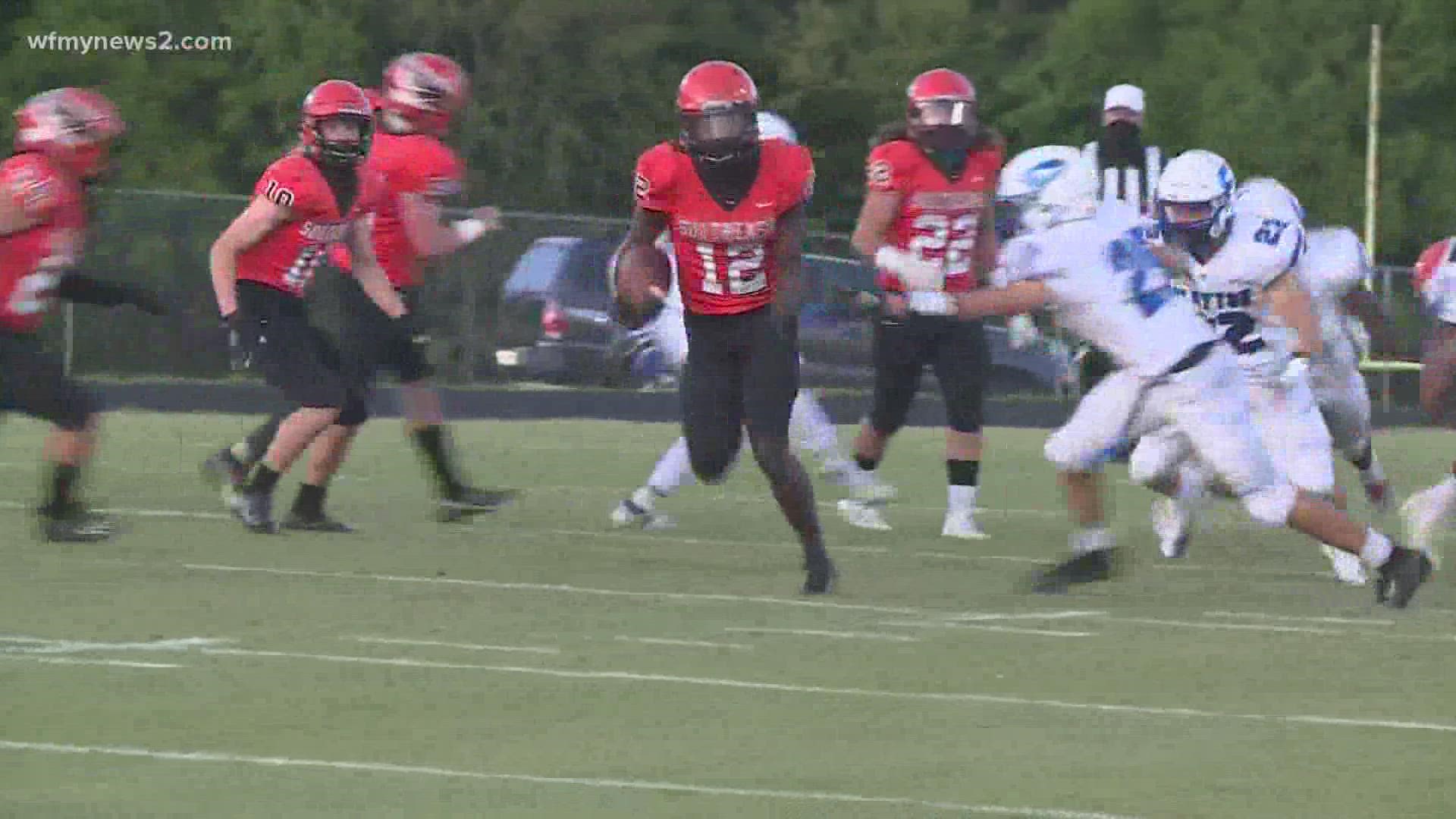NORTH CAROLINA, USA — The ABC Science Collaborative, a group of doctors working closely with school districts across the state, spent the last year researching COVID-19 transmission in schools.
Their latest study came out in June, but remains relevant, with so many districts starting back - and some weighing their options about whether to reverse course on optional masking.
The study showed that last year, schools were highly successful in preventing COVID transmission within the school buildings. Why? In short, because of masks.
Dr. Ibukun Kalu, part of this group and a pediatric infectious disease doctor at Duke University, explained.
"Based on our experience in North Carolina, but also replicated across the nation, we have seen that school settings that have implemented universal masking - as well as a few other measures which included some screening measures, some cleaning, some spacing out - were able to show low rates of in-school transmission.
"This does not mean that masking by itself works to prevent transmission. It certainly means that we should promote vaccination. We have a stronger tool these days. But we are unable to vaccinate all of our K through 12 population, so masking is a low-cost and very effective tool for reducing spread of COVID-19 as well," Dr. Kalu said.
Dr. Kalu said schools that have started back without required masking are already seeing the effects of that decision.
"Districts that apply voluntary masking policies, which essentially encourage masking but don't require masking, lead to lower masking compliance, and can inadvertently lead to some outbreaks," she said.
While she defers to school leaders as to which decision might work best for their community, she would encourage them to use this data that already exists: masks work in stopping the spread, given that many kids aren't eligible to get vaccinated right now.
"It will help with a smoother school year and increase the safety of our schools," she said.



